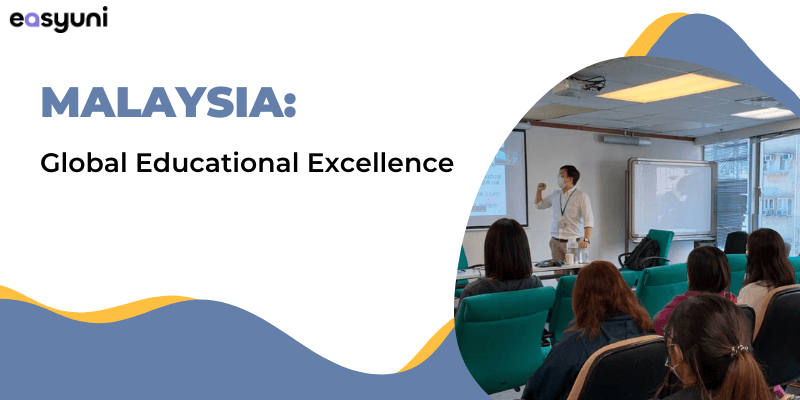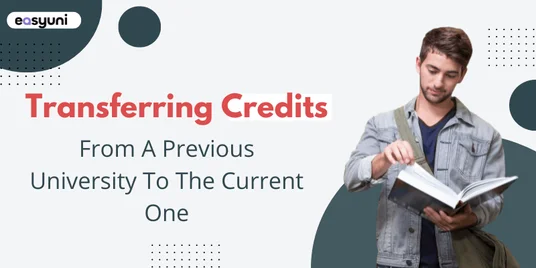Malaysia as a Destination for Global Educational Excellence
April 15, 2024
Anis

Education is the foundation for the development of knowledge, skills and human capital that drive innovation and economic growth globally.
As the world becomes increasingly interconnected, countries recognize the vital need to transform their education systems and equip youth for success in the 21st century.
Malaysia has taken decisive steps towards becoming a pioneering leader in global education through focused reforms, strategic partnerships and harnessing technology.
With a progressive vision for the future of its youth and society as a whole, Malaysia aims to provide access to quality education for all, nurture creative students adept at critical thinking, and foster tolerance through cultural diversity in its schools.
The nation is emerging as an inspirational role model with its educational progress, strong academic standards, high-tech campuses and collaborative spirit.
Malaysia is forging a bright path forward as initiatives in curriculum, teacher training and improved facilities create a fertile environment for learning.
This focus on people and skills development will allow Malaysia to play an integral role in education advancement worldwide.
What are the key factors driving Malaysia's emergence as an education hub?
Malaysia has risen as a potential education hub in recent years due to its strategic investments, progressive policies and advantages. Here are some key factors driving this development:
1. Strategic investments and reforms
Malaysia's ascent as a prominent education hub is driven by strategic government investments and reforms.
Through initiatives like the Malaysia Education Blueprint 2013 - 2025, Malaysia underscores its commitment to improving educational quality, accessibility, and international cooperation.
Substantial funding in modern infrastructure, scholarships, and research collaborations, including specialised zones like the Iskandar Education Hub, EduCity in Iskandar, and Cyberjaya Education Hub, underscores Malaysia's dedication to academic excellence and innovation.
These concerted efforts not only elevate Malaysia's educational stature but also position the nation as a leading hub for research and development in the region.
2. Accessibility and affordability
Malaysia's appeal as an education destination is enhanced by its commitment to accessibility and affordability.
Compared to some Western counterparts, particularly the US and UK, universities in Malaysia offer quality education at more affordable tuition fees, making them attractive to international students seeking value for money.
Moreover, universities in Malaysia often provide various scholarship opportunities to both local and international students. These scholarships, which are typically merit-based, aim to support students with exceptional academic achievements.
Additionally, the widespread use of English as the medium of instruction in many private universities significantly improves accessibility for international students.
3. Cultural diversity and inclusiveness

Malaysia's rich multicultural society provides a distinctive learning atmosphere, fostering tolerance and understanding among its diverse ethnic and religious communities.
This inclusive environment not only enriches the educational experience but also prepares students to thrive in a globalised world characterised by cultural diversity.
Moreover, Malaysia's commitment to being a welcoming destination for international students is evident through initiatives like the Education Malaysia Global Services (EMGS) program and streamlined visa procedures.
These efforts make it easier for students from around the world to study and live in the country, further enhancing the diversity of perspectives within its educational institutions.
Additionally, Malaysia places a strong emphasis on developing soft skills alongside academic excellence.
By prioritising communication, teamwork, and cultural awareness, graduates are equipped with the essential skills needed to succeed in today's interconnected workforce.
This approach to education ensures that students not only excel academically but also possess the interpersonal skills necessary for navigating diverse professional environments effectively.
4. Strong academic standards and quality assurance
Malaysia's higher education system upholds strong academic standards and quality through various initiatives.
Rigorous accreditation processes are conducted by independent bodies like the Malaysian Qualifications Agency (MQA) and play a crucial role in ensuring institutions meet predefined benchmarks and international standards.
Other than that, universities in Malaysia prioritise continuous improvement by actively engaging in benchmarking exercises with global counterparts, fostering research collaborations, and participating in knowledge-sharing initiatives.
These endeavours ensure the system stays abreast of emerging trends and best practices, allowing institutions to refine their curriculum, teaching methods, and research efforts.
This focus on continuous improvement ultimately prepares graduates with the knowledge, skills, and adaptability needed to thrive in the modern workforce.
5. Improved learning experiences
Universities in Malaysia actively adopt e-learning platforms, blended learning models, and other technological advancements to enhance the educational experience for students.
Additionally, there is a strong emphasis on Science, Technology, Engineering, and Mathematics (STEM) education, reflecting the growing importance of these fields in today's knowledge economy.
By focusing on STEM disciplines, universities in Malaysia are equipping students with the necessary skills and knowledge to excel in technology-driven industries.
Moreover, Malaysian universities foster collaboration with industry leaders, forming partnerships that provide students with valuable real-world experience and exposure to cutting-edge technologies.
Through industry collaborations, students gain valuable experience in internships, research projects, and other practical activities. These partnerships bridge the gap between academia and industry, preparing students for successful careers in a rapidly evolving technological landscape.
What are Malaysia’s strategies in the educational sector?
In the ever-evolving landscape of global education, Malaysia has emerged as a key player, not just for its affordability and accessibility, but for its strategic approach to education reform.
At the forefront of Malaysia's educational strategies is the Reskill and Upskill program, a new emerging educational model aimed at the workforce, including short courses and industry-specific programs.
This program underscores Malaysia's commitment to holistic education. It equips employees with new skills through reskilling.
Other than that, it also prepares them for diverse positions within companies through upskilling initiatives.
Through the Reskill and Upskill program, Malaysia aims to enhance workforce capabilities, thus positioning itself as an educational leader in Southeast Asia.
This initiative complements Malaysia's broader educational reforms, as outlined in the Malaysia Education Blueprint launched in 2013.
By aligning its curriculum with global benchmarks and focusing on the five aspirations of access, quality, equity, unity, and efficiency, Malaysia is setting new standards for excellence in education.
1. Malaysia and global education partnerships
Malaysia's dedication to enhancing global education is exemplified by its steadfast commitment to providing quality education.
This commitment is evident in Malaysia's proactive efforts to contribute to the evolution of international education standards through various means, including collaboration, mergers, and acquisitions of university brands.
In addition to collaboration and acquisitions, Malaysia has also prioritised initiatives aimed at enhancing the internationalisation of its education sector.
By attracting foreign students, fostering cultural exchange programs, and promoting international research collaborations, Malaysia continues to play a significant role in advancing global education.
2. Enriching academics excellence through international collaboration
Universities in Malaysia are deeply involved in partnerships with global institutions to enhance their academic standards and promote knowledge exchange. These collaborations occur through various means.
Firstly, collaborative research initiatives are important, involving joint projects and interdisciplinary studies that unite experts from different fields.
These efforts not only push the boundaries of knowledge forward but also stimulate innovation and creativity.
Additionally, student exchange programs play a crucial role in broadening perspectives and fostering cultural understanding.
Through participation in such programs, students gain invaluable international exposure, enriching both their academic and personal development.
Moreover, universities in Malaysia actively establish partnerships among faculty members, facilitating the exchange of expertise and best practices in teaching and research methods.
These collaborations involve joint efforts in curriculum development, research endeavours, and advancements, thereby enhancing the academic landscape and encouraging ongoing improvement.
3. Transforming teaching and learning through technology

Technology plays a vital role in Malaysia's education strategy, serving as a powerful tool that enables personalised learning, encourages collaboration among students and teachers, and widens access to education for more people.
Malaysia's embrace of technology is evident through initiatives like the Digital Maker Movement, which promotes essential skills such as coding and app development, particularly among secondary school students.
Moreover, Malaysia is exploring new and creative ways to improve education. For example, Malaysia is exploring flipped classrooms, where students learn at home and then engage in discussions and activities in class.
Additionally, it explores gamified learning programs and micro-credentials, offering flexible ways for learners to acquire new skills.
Malaysia is also increasingly adopting online and blended learning methods, using digital resources to create more dynamic learning environments that cater to different learning styles and preferences.
As Malaysia continues to innovate in education, its focus on technology and innovative approaches promises to make education more accessible and effective for everyone.
4. Cultivating cultural diversity
Universities in Malaysia embed cultural diversity deeply into their educational strategies, emphasising its significance in fostering inclusive learning environments.
This integration spans curriculum development, teaching methods, and campus life, creating spaces that celebrate differences and encourage cultural exchange among students.
By embracing this approach, universities prepare students for success in a globalised world, providing exposure to diverse perspectives and traditions.
Additionally, Malaysia's commitment to multicultural education extends beyond campus boundaries, with initiatives promoting cultural diversity and inclusivity in broader society.
These efforts include community engagement programs, cultural festivals, and initiatives to preserve indigenous cultures.
5. Promoting entrepreneurship and innovation
The educational sector in Malaysia is committed to promoting entrepreneurship and innovation among students through various strategic initiatives.
These include integrating entrepreneurship education into different academic disciplines, offering specialised courses such as minors or bachelor's degrees in entrepreneurship, and hosting workshops and seminars.
Additionally, Malaysia has established startup incubators and accelerators within universities and research institutions like MaGIC (Malaysian Global Innovation & Creativity Centre).
This initiative provides aspiring entrepreneurs with vital support like mentoring, funding, and workspace.
Moreover, there is a strong emphasis on fostering collaboration between academic institutions and industries. This is evident through programs such as student internship initiatives facilitated by platforms like MySkills.
How does Malaysia's cultural diversity influence its educational approach?
Malaysia is renowned for its vibrant cultural tapestry, which not only shapes its educational approach.
It also provides opportunities for international students seeking a diverse and enriching learning environment.
Here's how cultural diversity shapes the country's educational approach and what that means for international students:
1. Diverse culture in classroom

Universities in Malaysia feature a diverse student body comprising individuals from various backgrounds and nationalities, contributing to a rich and dynamic academic environment.
This diversity serves to cultivate an engaging learning atmosphere beneficial for both local and international students.
Students actively engage in collaborative projects, discussions, and peer learning experiences, facilitating the exchange of diverse perspectives and viewpoints.
These interactions not only enhance critical thinking and communication skills but also provide establishment of lifelong friendships and professional networks transcending geographical boundaries.
By interacting with individuals from across the globe, students gain valuable insights into the differences of diverse cultures. This exposure lays a solid groundwork for future collaborations and leadership roles in our globally interconnected society.
2. Cultural sensitivity in curriculum
Universities in Malaysia prioritise a culturally sensitive curriculum and teaching methods to prepare students for success in today's globalised world.
By offering coursework that embraces diverse perspectives, they aim to deepen students' understanding of global complexities.
Subjects like political science, literature, and business integrate the study of cultural differences, equipping students with essential skills for navigating multicultural settings.
This understanding is crucial for aspiring leaders in an increasingly interconnected world.
Educators emphasise creating inclusive classroom environments where every culture is respected and individual voices are valued.
This welcoming atmosphere extends to international students, who are encouraged to contribute their unique perspectives.
Through these efforts, universities in Malaysia aim to cultivate culturally competent graduates ready to thrive in diverse societies.
3. Community life in universities in Malaysia
Another aspect is the celebration of multicultural events and festivals, where various cultural traditions and holidays are embraced and commemorated.
These events offer international students a valuable opportunity to immerse themselves in new cultural experiences, learn about different traditions, and share their own cultural heritage with others.
Moreover, language exchange programs play an important role in promoting linguistic diversity and proficiency among students.
These programs offer opportunities for students to practise languages such as English or learn regional languages like Bahasa Malaysia, or even teach their mother tongue to others.
By participating in language exchange activities, students not only enhance their language skills but also develop cross-cultural communication abilities, fostering a more inclusive and interconnected campus community.
In conclusion, Malaysia has emerged as a destination for global educational excellence, driven by several key factors and strategic initiatives in the educational sector.
The nation's ascent as an education hub is propelled by strategic investments, accessibility, affordability, cultural diversity, and strong academic standards.
As Malaysia continues to prioritize education and innovation, it is poised to make significant contributions to global educational advancement and foster a more inclusive and prosperous future for its local and international students alike.
Kickstart your education in Malaysia
We'll help you find and apply for your dream university
You might be interested in...
- Raising Awareness of the Threat of Microplastics Pollution on International Mother Earth Day
- The Role of Education in Promoting Health Equity: Lessons from World Health Day 2024
- Navigating Credit Transfers: A Guide for Students Switching Institutions
- Explore the Benefits of Studying in Malaysia After SPM Examination
- SPM Leavers’ Guide to Malaysian Scholarships: Types, General Requirements, and Practical Tips
- Crafting a Greener Tomorrow: Empowering Change through Zero Waste and Upcycling Practices
- Malaysian Higher Education's Global Outreach: Collaborations with International Institutions
- Initiatives by Universities in Malaysia to Prepare Students for Globalization
- PHAM 2024 Takes Center Stage at Sunway University, First in Asia
- Malaysia as a Destination for Global Educational Excellence








